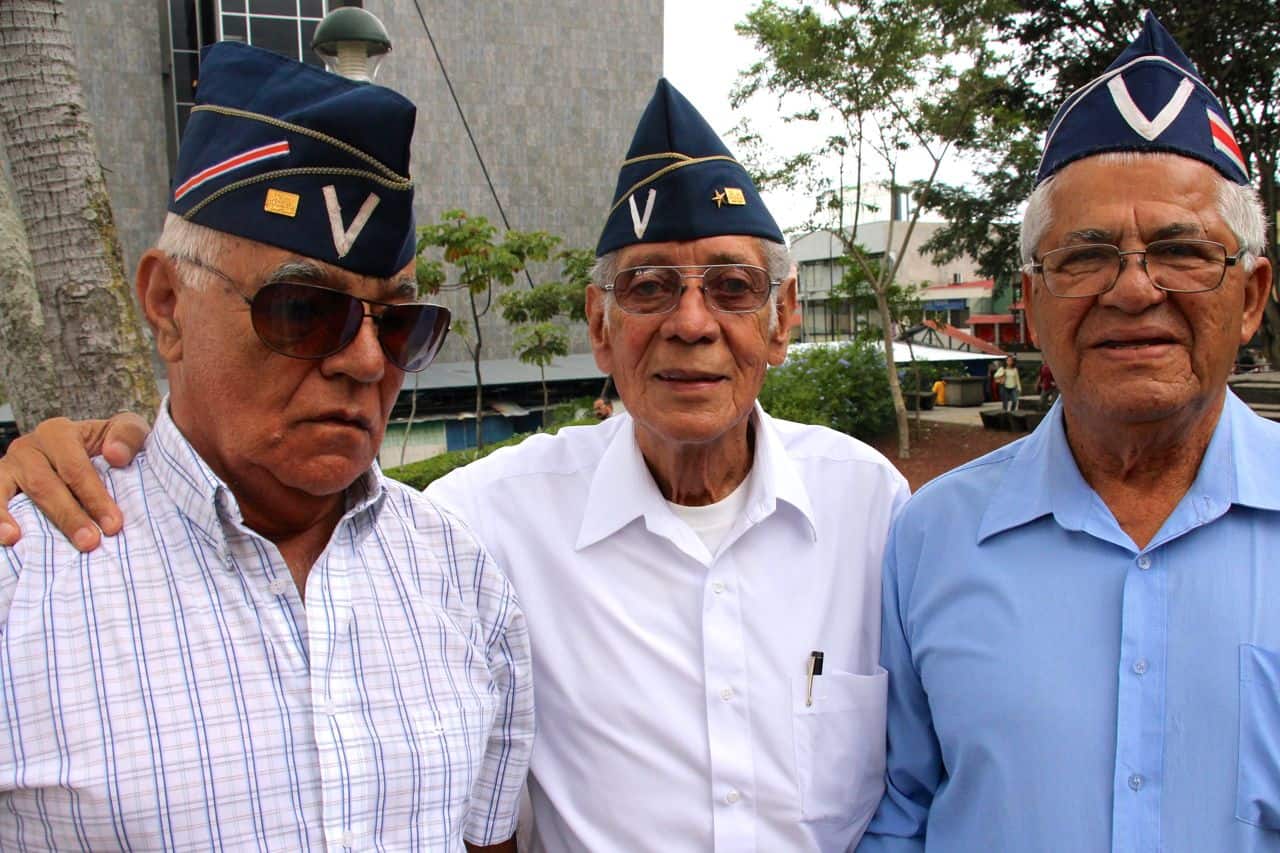On the steps of the former Bellavista Fort, now the National Museum, President Laura Chinchilla marked the 65th anniversary of the abolishment of Costa Rica’s army on Sunday. “There are no weapons stronger than truth, justice, and liberty,” said Chinchilla Sunday afternoon, standing on the steps of San José’s National Museum where President José Figueres Ferrer announced the disbandment of Costa Rica’s armed forces on Dec. 1, 1948.
“Our children are innocent of the errors of war, and our youth have not been called to serve on the battlefield. We instead founded schools, churches, orchestras, dance companies, while countries living in misery in the rest of the world continue investing in weapons of destruction,” the president said, according to a statement from the Casa Presidencial Monday.
Chinchilla also honored the Costa Rican National Olympic Committee for its contributions to development and peace. The president added that there was a “Costa Rican way” of resolving problems nonviolently, based in part on international organizations like the United Nations and the world court at The Hague.
The International Court of Justice levied its latest judgment on Nov. 22 in Costa Rica and Nicaragua’s protracted border dispute over the Isla Portillos, requiring Nicaragua to cease new dredging operations in the area and clean up any environmental damaged to the wetlands protected by the Ramsar Convention.
However, the slow pace of international mechanisms like the world court has led some Ticos to call for the mobilization of armed civilian militias. In October, CRHoy.com reported on the formation of the self-styled “paramilitary” force “Patrulla 1856,” or 1856 Patrol, an “apolitical group whose purpose is to serve the motherland in support of the defense of Costa Rica’s sovereignty.”
In late September, former head of the Costa Rican National Police Col. José Fabio Pizzaro told Repretel that 4,000 Ticos answered his call to receive survival and defense training, including the use of AK-47 assault rifles, in the event that Nicaragua were to invade Costa Rica. Pizzaro told the television news crew that the force would serve at the pleasure of the Public Security Ministry, which recoiled at the idea.
Recent conflicts aside, in her speech Chinchilla emphasized Costa Rica’s peaceful record and investment in education – more than 7 percent of gross domestic product – versus military spending. Figueres announced the end of a standing army in times of peace in 1948, following a civil war over a disputed election. The decision became the law of the land in the 1949 Constitution.
Costa Rica retains a National Police, however, to enforce laws and investigate crime. Today, Costa Rica is one of the only countries in the world without a standing army. Neighboring Panama abolished its armed forced in 1990. Other countries without armed forces include Monaco, Haiti, the Vatican City and Iceland.






